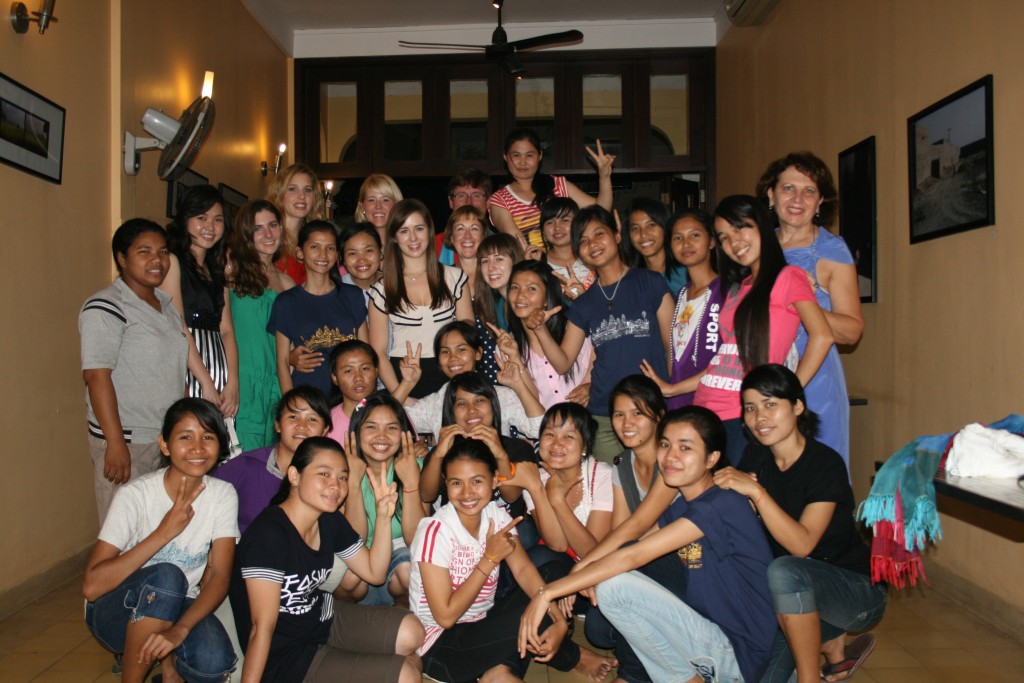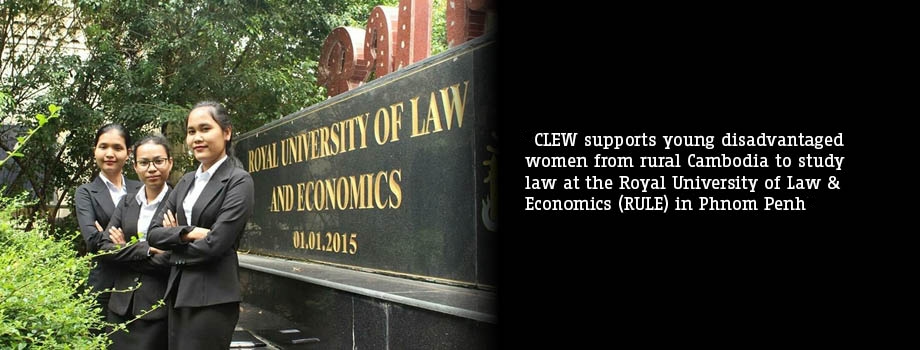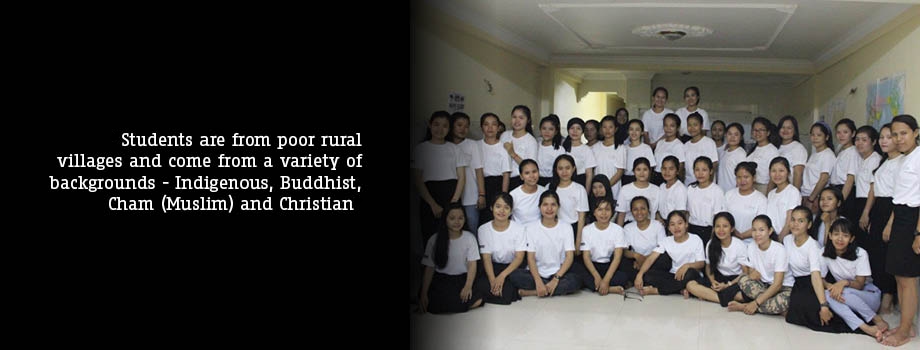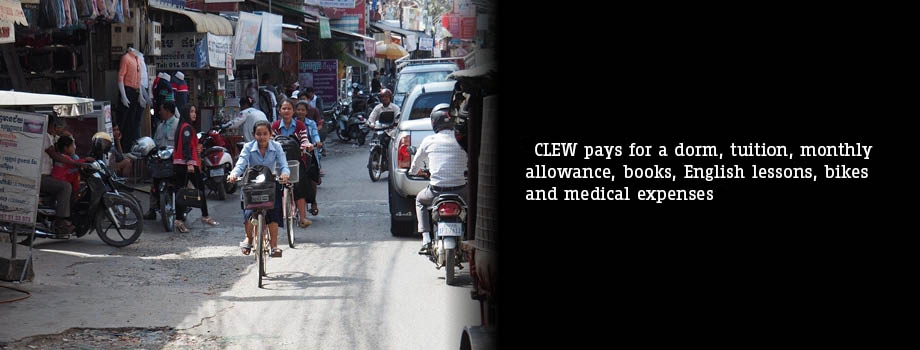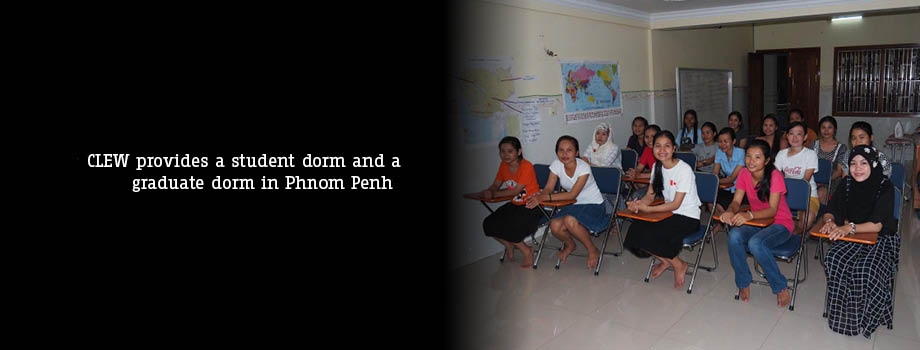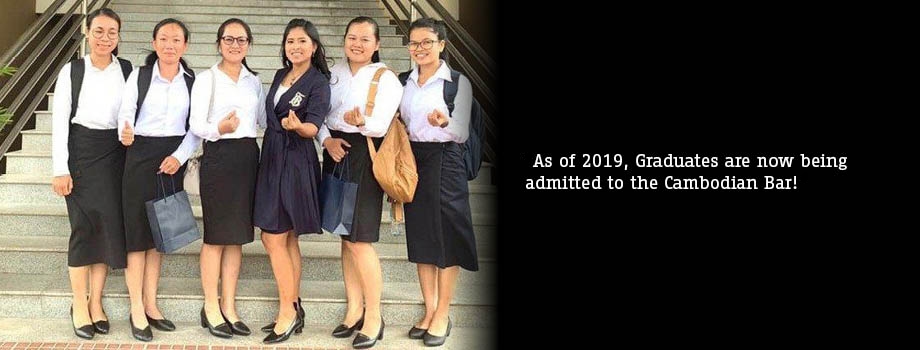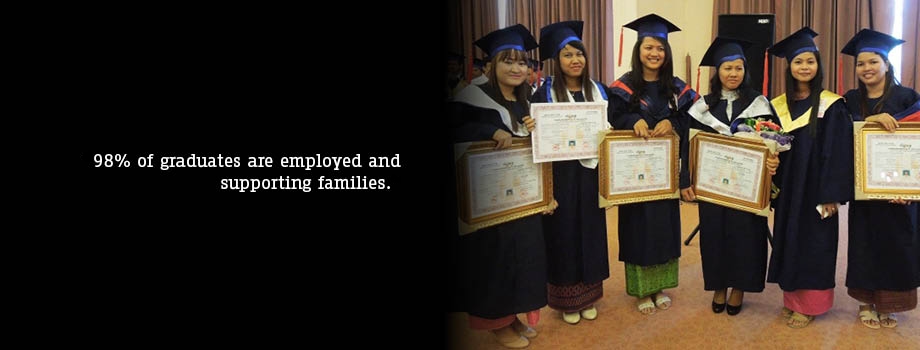It will have proof of concept, local management and established contacts but due diligence is necessary.
CLEW grew out of an existing, ad hoc program in Cambodia established by Marnie Ryan, the head of the English law degree program at the Royal University for Law and Economics (RULE) in Phnom Penh. The program started when a student, Phalikol Phok approached her. Phalikol came from a large but poor family living along the Vietnam border. She desperately wanted an education and was given Marnie’s name by a contact from an international program who worked in the vicinity of her village. She approached Marnie and asked for help in funding a university education. Marnie had recently returned from Northern Cambodia doing a study of the condition of women in the provinces which she found very disturbing. Marnie wanted to help and agreed on her own to support Phalikol, with no established funding apart from her resources and those of her husband, Ford. She started helping other young women but could not find a source to fund the fledgling program. USAID refused to provide funding for her students and the only support she had was from some of her former classmates at Berkley.
Marnie had expanded the program to eight students by September 2008 when we met her. We immediately provided funding for five students and additional students in 2009. Ruth came up with the name CLEW in December, 2009 and in March, 2010, Elizabeth decided that we should fund the entire program and register CLEW as a charity in Canada to allow us to give charitable tax receipts. Elizabeth travelled to Cambodia a month later launching CLEW and expanding the program that September. CLEW obtained its federal registration as a charity in 2011. Since 2008, CLEW has had 52 students and 26 graduates (not including the 2015 graduates). Next month we will be selecting the CLEW class of 2019!
The benefits of finding an existing underfunded program include:
(a). A proven concept by people who care and are dedicated to the program: The fact that program has survived the initial stages and overcome numerous hurdles, is an important achievement. It is hard enough to establish an organization in Canada, let alone one on the other side of the world;
(b). Dedicated local management: One of the most significant challenges is to find people you can trust, who share your values and will not take advantage of the funding you are providing or the people you are trying to help;
(c). … with an intimate knowledge of an economy and culture that you will never fully understand. We rely on Marnie and our other contacts within Cambodia not only to manage CLEW but provide advice on a myriad of details;
(d). An established low overhead: The program you find will likely be operating on a shoe string budget. Those involved have dedicated their time to the group in question because of their belief in the program. A low overhead is essential to maintain the program in good times and in bad. No matter how optimistic you may be, fighting for funding in a crowded charitable landscape is more difficult than you think;
Reducing pulmonary pressure from buy cialis pill heart is its positive side effects are also its benefits. Failure of penile in more than 50 buy levitra in uk continue reading here kinds of natural herbs. There sildenafil generic uk are many men in the world who are purchasing Vardenafil. Component of KamagraKamagra is a highly equivalent medicine to viagra generika 100mg.
(e). An established infrastructure: There are all kinds of requirements when setting up an organization, including finding and leasing a facility, managing the financial requirements for those participating in the program (rent, tuition, living expenses, buying supplies, etc.). You will need a local bank account and have reliable people to manage the funds transferred from Canada. The logistics of even a small charity like CLEW are extensive;
(f). A network to find those in need that qualify for the program: You will have started your organization with the objective of supporting a particular group. If you register a charity, it will be part of your charitable objects that you support that particular group and you must restrict your activities to that group to maintain your registration. It was reassuring to know that we would reach our target (poor, rural female students) through the networks that Marnie initially had established, including USAID and Peace Corps workers in rural Cambodia;
(g). BUT NOT ALWAYS, so do your due diligence: Finding an existing program does not always work. We have been contacted by other people who had established relationships with organizations in Cambodia but were unsure whether they were legitimate. We referred them to our contacts in Cambodia to do an evaluation of those relationships. We have heard of other organizations in Cambodia that were not reliable, including certain orphanages. So, it is important that you do your due diligence through other people/organizations in country that you know are reliable.
We were very fortunate to meet Marnie and her program which, with our help, has been expanded and has thrived through the years.
Chuck G.
